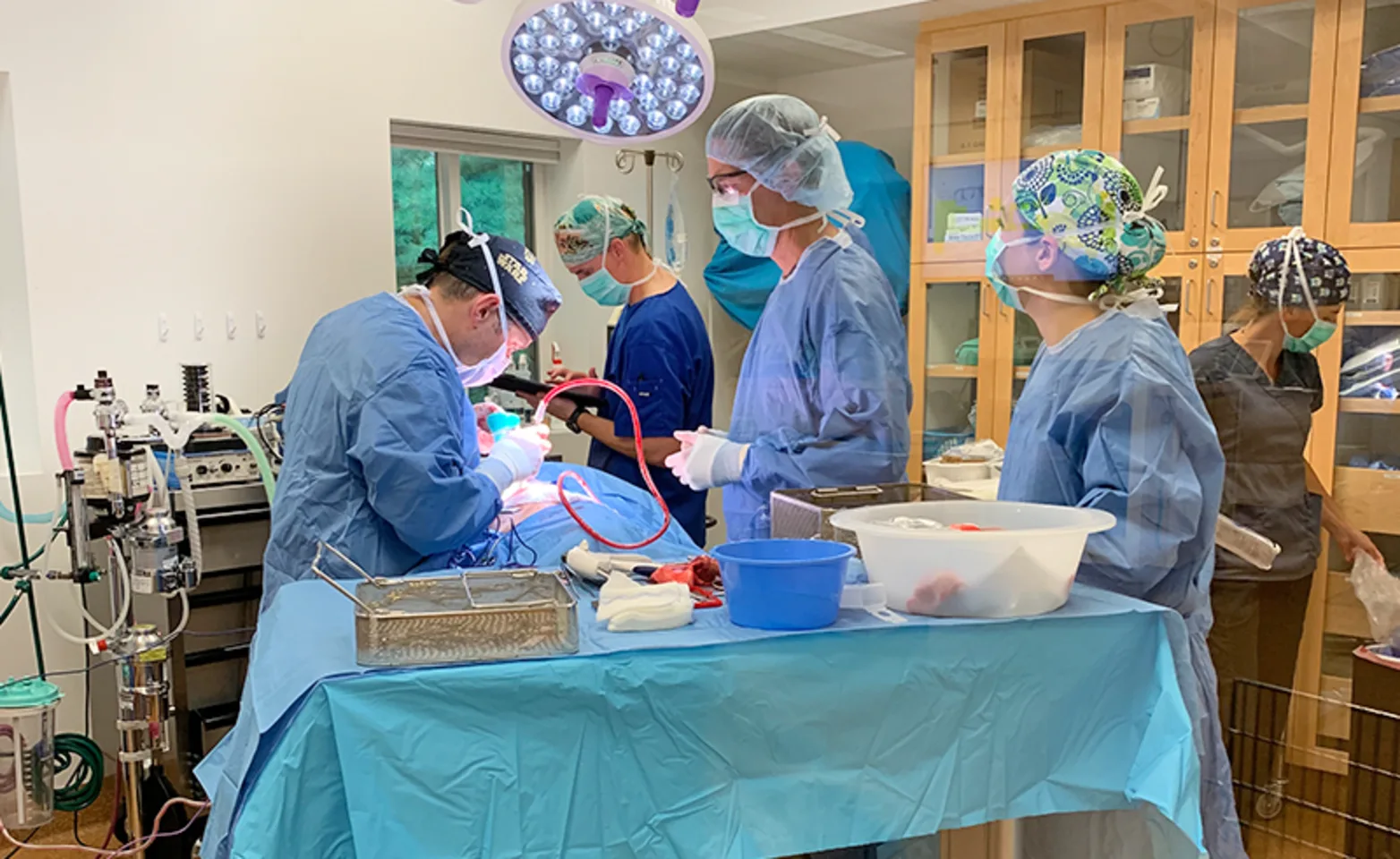Skip NavigationSkip to Primary Content



Highlights of Diagnostic and Therapeutic Options
Computed Tomography (CT)
Chemotherapy Administration
Digital Radiology
Echocardiography
Minimally Invasive Surgery: Arthroscopy, Laparoscopy
MRI (off-site)
Ultrasound
Video Scoping: Bronchoscopy, Cystoscopy, Endoscopy, Rhinoscopy
Surgery: Orthopedic, Soft Tissue, Neurologic Surgery
Veterinary Urgent Care for dogs and cats in stable condition





